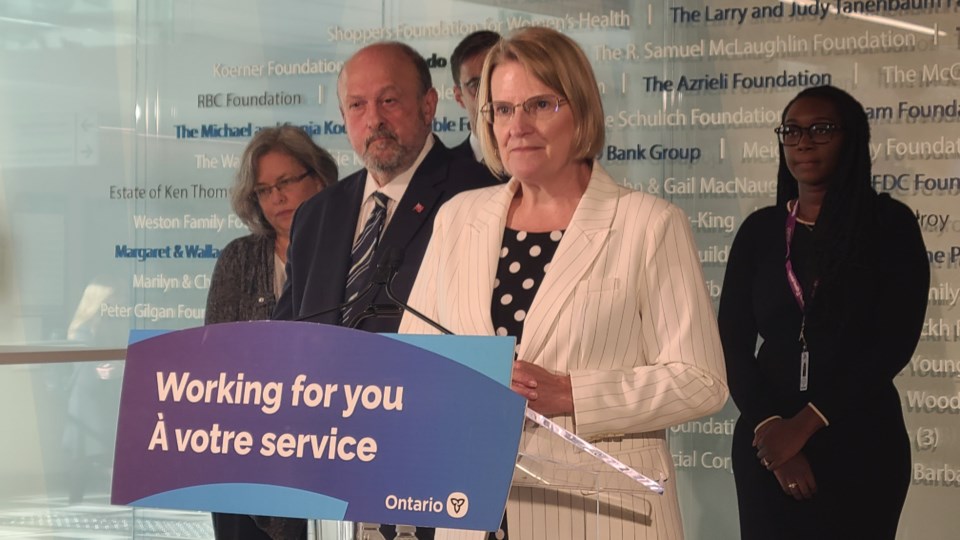EDITOR’S NOTE: This article originally appeared on The Trillium, a Village Media website devoted to covering provincial politics at Queen’s Park.
Associate Mental Health and Addictions Minister Michael Tibollo said on Monday that proposals to force more Ontarians with severe mental health and addiction problems into treatment will have to wait until the province's mental health care system has more capacity.
At a press conference held inside the Centre for Addiction and Mental Health (CAMH) complex care facility, reporters asked Tibollo about the calls from Brampton Mayor Patrick Brown, Barrie Mayor Alex Nuttall, and Brantford Mayor Kevin Davis for changes to the Mental Health Act to allow people — especially those living in encampments — to be sent for treatment without their consent. Brown's preferred term for this is "compassionate intervention."
Tibollo initially attempted to sidestep questions about involuntary treatment, including Premier Doug Ford's comment last week suggesting that Tibollo is a "big fan" of the idea.
"What I'm a big fan of is treatment and recovery," said Tibollo before finally relenting after The Trillium noted that Mayor Brown had also claimed the minister "admires" the involuntary treatment proposal being implemented in British Columbia.
"When it comes to compassionate interventions, I think that's something that really needs to be studied and looked at," said Tibollo.
"Personally, my opinion is that until we have the system built that allows people to get treatment, when and where they are, we really need to continue focusing on that."
Tibollo emphasized repeatedly that the Progressive Conservative government's current priority when it comes to the mental health system is "increasing capacity."
The government is accomplishing this, he said, by creating a system of new homelessness and addiction recovery treatment (HART) hubs in communities across Ontario, and making strategic investments in the mental health care system, including Monday's announcement of $19 million for the Early Psychosis Intervention program at CAMH.
"That's an extremely important piece right now," he said. "We'll continue building that capacity and looking at how we can help more people."
Aside from decrying the impact on patients' rights, critics of the mayors' compulsory treatment proposals have highlighted that the Ontario mental health care system doesn't have the necessary capacity to handle an influx of involuntary patients.
"ERs discharge patients every day who voluntarily want addiction treatment and shelter, as there are zero places available," said University Health Network emergency physician Raghu Venugopal on social media. "There are patients who do need psychiatric admission to hospital. But, again, there are no beds available."
Ontario Overdose Prevention Society coordinator Zoë Dodd said much the same.
"People are in crisis all the time trying to access the terrible systems we currently have and cannot get help," she said.
British Columbia is working to provide capacity for its involuntary treatment proposal by building secure mental health treatment facilities within provincial jails such as the Alouette Correctional Centre, as well as hundreds of mental health beds at conventional hospitals.
Tibollo downplayed the use of jails in British Columbia when asked what he specifically admires about the plan.
Psychiatrist and CAMH's vice-president of research Dr. Aristotle Voineskos, speaking at Monday's press conference, cautioned against making legislative changes to increase involuntary mental health treatment, noting that the Mental Health Act already has provisions that allow for people to be placed in care involuntarily.
"It's something our doctors use very judiciously and cautiously when someone is suffering from such a severe illness that puts themselves at very high risk to their own person or to others. That's the test," Voineskos explained.
"It's possible that a small subset of [people living on the street] would meet that test, but many people who probably wouldn't. I think, at this point, we have tools available to us to really help people when they're at serious risk."
